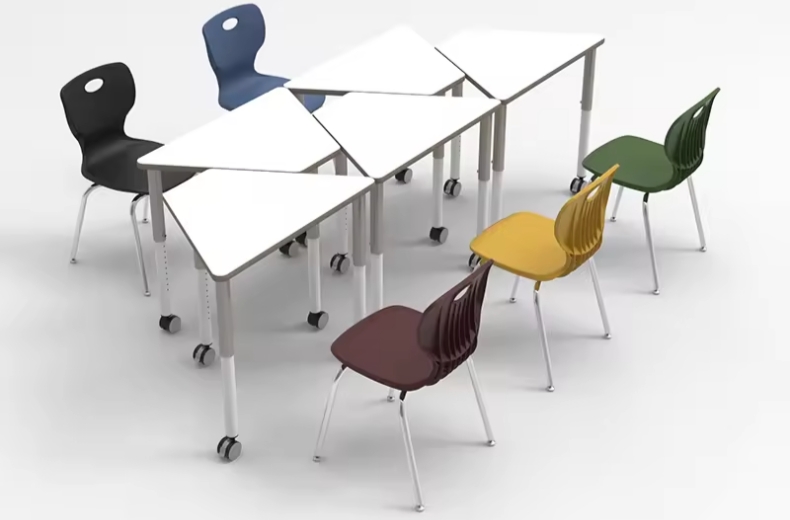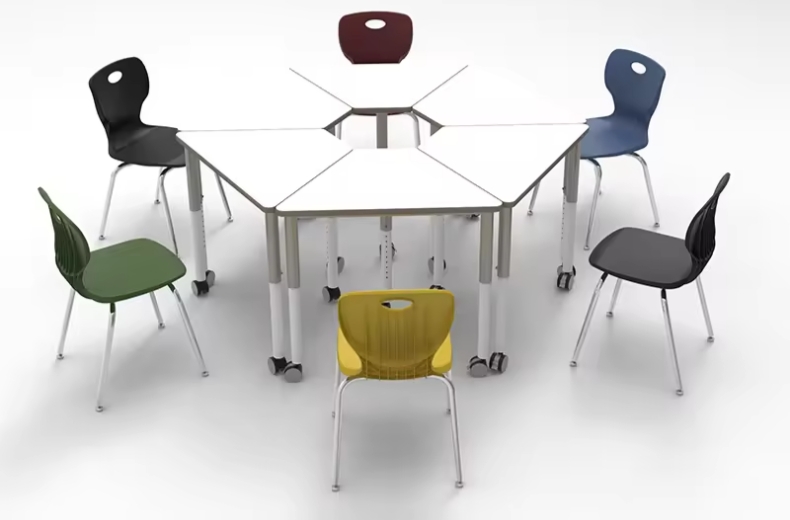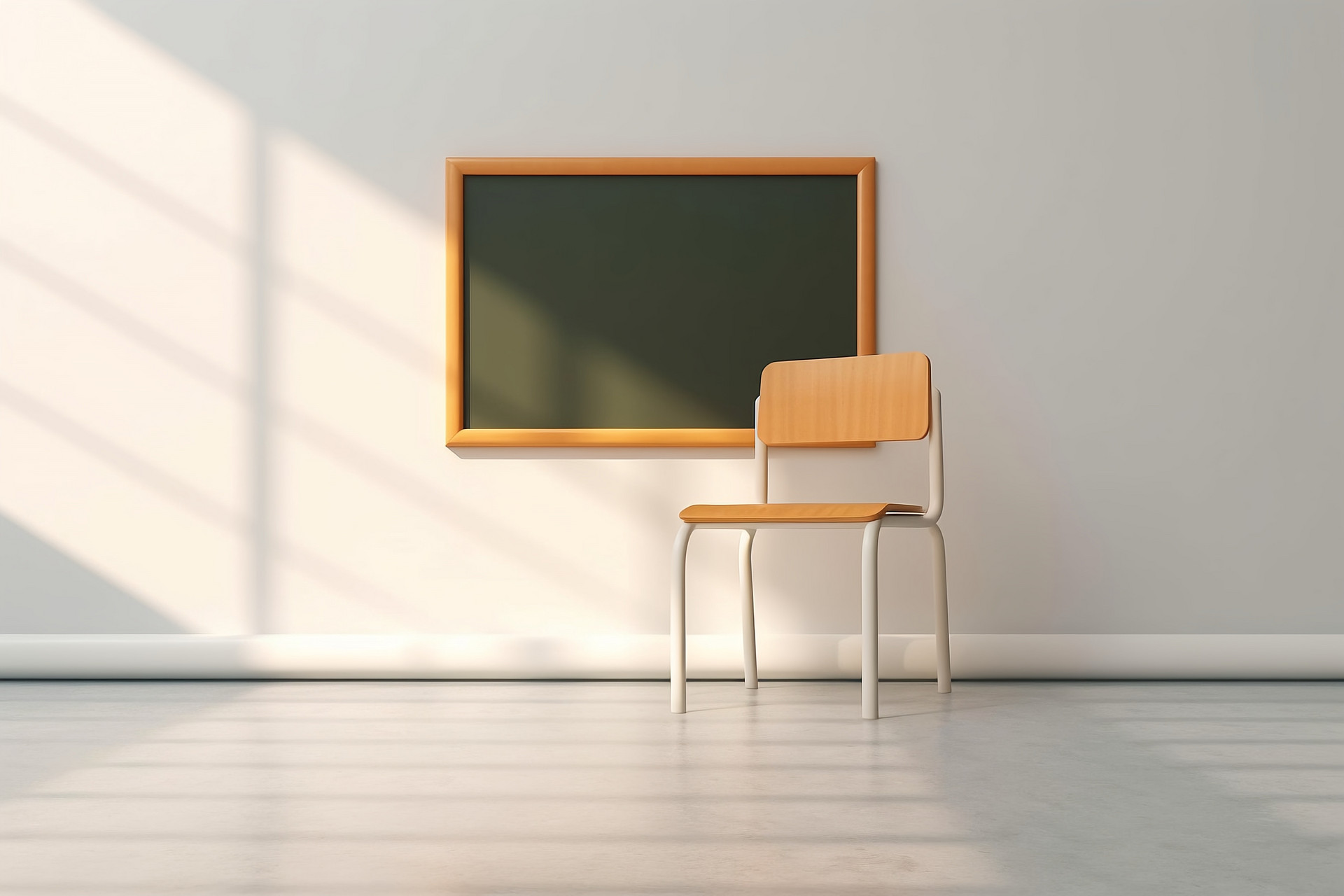Ergonomic furniture in educational settings has a profound impact on students' comfort, performance, and overall health. Different age groups respond uniquely to ergonomic furniture, and understanding these responses is crucial for creating effective learning environments.

Younger Students (Elementary School Age)
For younger students, ergonomic furniture can play a critical role in their physical development and early learning experiences. Adjustable desks and chairs that can grow with their bodies help maintain proper, reducing the risk of developing bad habits that could lead to musculoskeletal issues later in life . Ergonomic furniture can also contribute to improved focus and engagement in class, as children are more comfortable and less likely to fidget due to physical discomfort.
Pre-Teens and Teens (Middle and High School Age)
As students enter their pre-teen and teenage years, their bodies undergo significant changes. Ergonomic furniture that accommodates these changes is essential for their health and academic success. For instance, sit-stand desks can help alleviate the stress of prolonged sitting during long school days, reducing the risk of back pain and improving cognitive function . Furniture with lumbar support and adjustable features can also help teens maintain proper posture, which is vital for preventing slouching and associated health issues.
University Students and Adult Learners
Older students and adult learners may have pre-existing conditions or have developed poor posture habits over the years. Ergonomic furniture in university settings or adult learning environments can help mitigate these issues. Features such as adjustable monitor stands, ergonomic chairs with good back support, and spacious desks contribute to reduced physical strain and improved focus during long study sessions .
Special Needs Students
Ergonomic furniture plays an essential role in special education by accommodating a wide range of physical needs and learning styles. Customized furniture solutions can provide essential support for students with disabilities, enhancing their comfort and enabling them to participate more fully in educational activities .

The effectiveness of ergonomic furniture in educational settings is well-documented across various age groups. By promoting proper posture, reducing physical discomfort, and enhancing focus, ergonomic furniture contributes to improved student well-being and academic performance. As educational institutions increasingly recognize the importance of ergonomics, the demand for age-appropriate, adaptable, and supportive furniture solutions is likely to grow.

